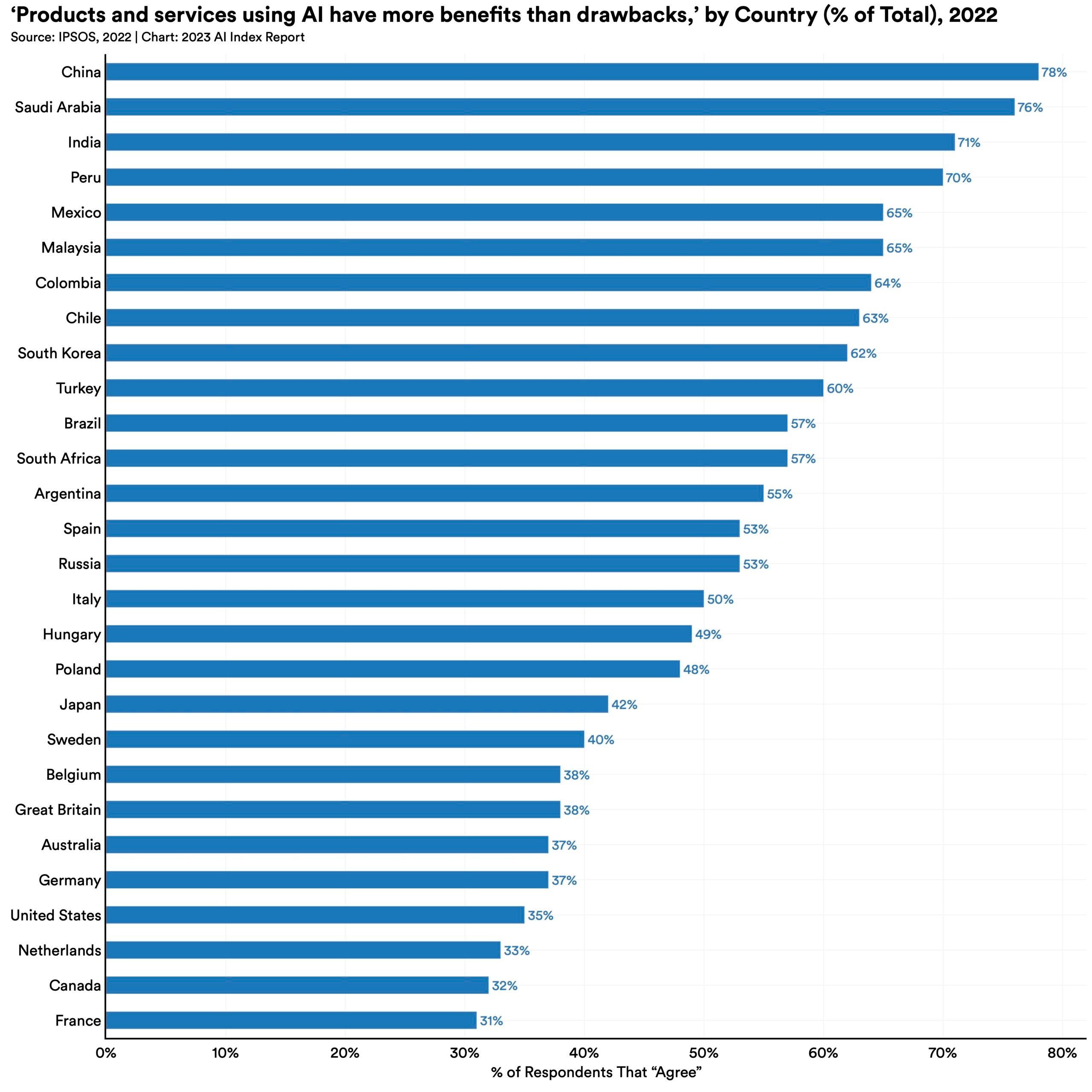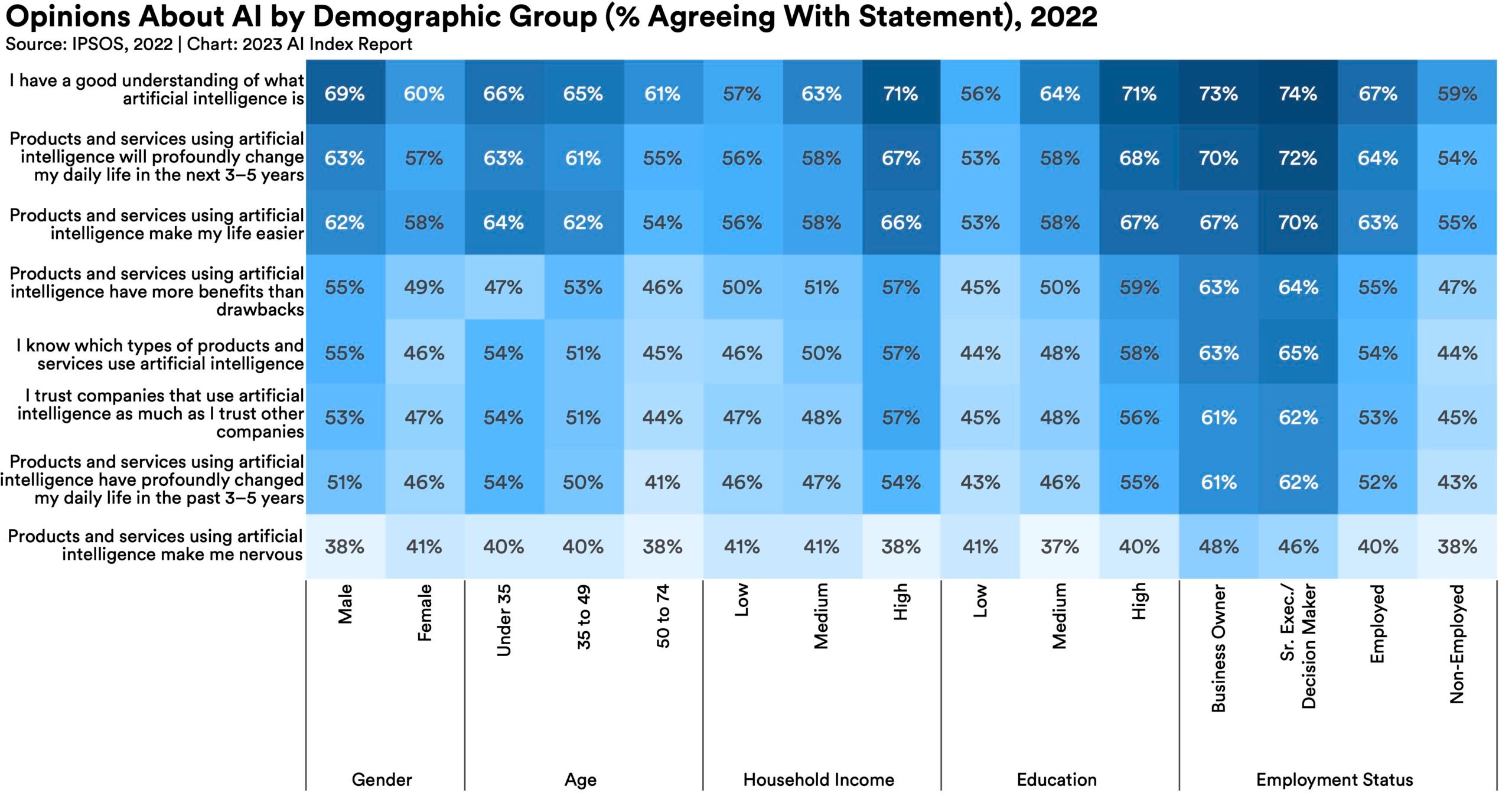
Get the latest news, advances in research, policy work, and education program updates from HAI in your inbox weekly.
Sign Up For Latest News
Chinese citizens are among those who feel the most positively about AI products and services. Americans ... not so much.
In a 2022 IPSOS survey, 78% of Chinese respondents (the highest proportion of surveyed countries) agreed with the statement that products and services using AI have more benefits than drawbacks. After Chinese respondents, those from Saudi Arabia (76%) and India (71%) felt the most positive about AI products. Only 35% of sampled Americans (among the lowest of surveyed countries) agreed that products and services using AI had more benefits than drawbacks.

Men tend to feel more positively about AI products and services than women. Men are also more likely than women to believe that AI will mostly help rather than harm.
According to the 2022 IPSOS survey, men are more likely than women to report that AI products and services make their lives easier, trust companies that use AI, and feel that AI products and services have more benefits than drawbacks. A 2021 survey by Gallup and Lloyd’s Register Foundation likewise revealed that men are more likely than women to agree with the statement that AI will mostly help rather than harm their country in the next 20 years.

People across the world and especially America remain unconvinced by self-driving cars.
In a global survey, only 27% of respondents reported feeling safe in a self-driving car. Similarly, Pew Research suggests that only 26% of Americans feel that driverless passenger vehicles are a good idea for society.

Different causes for excitement and concern.
Among a sample of surveyed Americans, those who report feeling excited about AI are most excited about the potential to make life and society better (31%) and to save time and make things more efficient (13%). Those who report feeling more concerned worry about the loss of human jobs (19%); surveillance, hacking, and digital privacy (16%); and the lack of human connection (12%).

NLP researchers ... have some strong opinions as well.
According to a survey widely distributed to NLP researchers, 77% either agreed or weakly agreed that private AI firms have too much influence, 41% said that NLP should be regulated, and 73% felt that AI could soon lead to revolutionary societal change. These were some of the many strong opinions held by the NLP research community.
